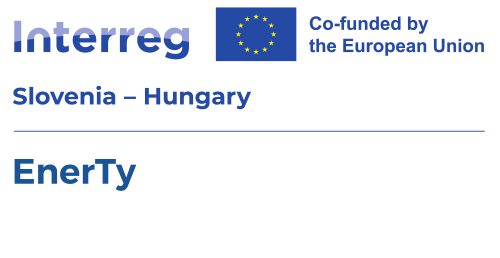Project overview
The common challenge addressed by the project through cross-border cooperation is to improve the knowledge and awareness of decision-makers, and to increase cooperation between decision-makers and the end users, in the field of prevention and elimination of household energy poverty. Around 13% of households in the programme area face energy poverty, consequently linking energy poverty to the risk of social exclusion. The programme area has also recently experienced a rise in energy prices, which further contributes to the problem of citizen’s energy poverty. Therefore, it is necessary to establish a realistic baseline and solutions for energy poverty: to obtain data on the ground and to identify the level of households already experiencing energy poverty and the level of those who will soon experience energy poverty. Energy poverty is a multidimensional problem and important challenge, which needs to be addressed by the key actors and decision-makers who can take concrete action. On the other hand, it is necessary to provide them with a starting point for action and to indicate possible solutions.
The project will contribute to reducing energy poverty through activities aimed at improving energy efficiency and the use of renewable energy sources in households. The results will be reflected in lower energy consumption, energy efficiency and better exploitation of the endogenous potentials of local energy sources and ultimately lower CO2 emissions. The concept, including an action plan involves the socially vulnerable and disadvantaged groups in the programme area who at biggest risk of energy poverty. A bottom-up initiative will be created, different approaches will be tested, and baselines and commitments will be prepared to fight household energy poverty in a coordinated way.
The EnerTy project brings together four partners, each responsible for implementing activities in their own region. The partners have in-house know-how and competences from previous participation in the Interreg SI-HU “Green Line” project. At the end of the “Green Line” project, partners signed a long-term cooperation protocol to improve the level of sustainable energy in the whole cross-border cooperation area between Slovenia and Hungary. Recently partners have noticed that the problems and challenges related to energy poverty in all regions of the programme area are very problematic, especially after Ukraine war culminated in raised energy prices. The fact is that the partners are familiar with the area, but we do not have all the data on the situation, and we do not have collected examples of good practices, policies and instruments that we can provide through the cooperation in the project. The lead partner has already carried out energy audits in the field and has some data for the Slovenian part of the region, while the Hungarian partners will carry out energy audits in households in the framework of the project, thus providing part of the input data for the analysis and demonstration of the situation of vulnerability to energy poverty. All partners will contact key organisations in the regions that can provide project with the missing data. We will develop a methodology to carry out these activities and finally prepare a comparative analysis of the situation. In the second work package, we will prepare an overview of good approaches and instruments and policy guidance. The concept of prevention and eradication of energy poverty with recommendations for the cross-border region SI HU, will be the basis for cooperation, the substantive orientation of the work and the framework that will define potential organisations. An important part of this document will be the identification and proposed actions to tackle and prevent energy poverty. This will also be a base for drawing on the contents to be covered and mastered by the protocols. The organisations will sign the Protocols of visibility and commitment to actions to reduce energy poverty. The signatories, such as decision-makers at local, regional and national level, and other key organisations with an impact on the field of energy poverty, will ensure that the project has a lasting impact on the programme area and its population after its implementation. A cross-border group of organisations will be formed, whose long-term cooperation will focus on monitoring the implementation of the protocols and cross-border monitoring of policy changes and new instruments. The content of the cooperation, if relevant and necessary, will be built upon through cooperation and/or involvement in EU project initiatives. The added value of the project will be to ensure a reduced level of energy poverty, especially in the less developed regions of Slovenia and Hungary.
Project achievements and materials
In this section you can find useful materials related to the project.
- File 1
- File 2
Project duration
Project start date:
1.12.2023
Project end date:

